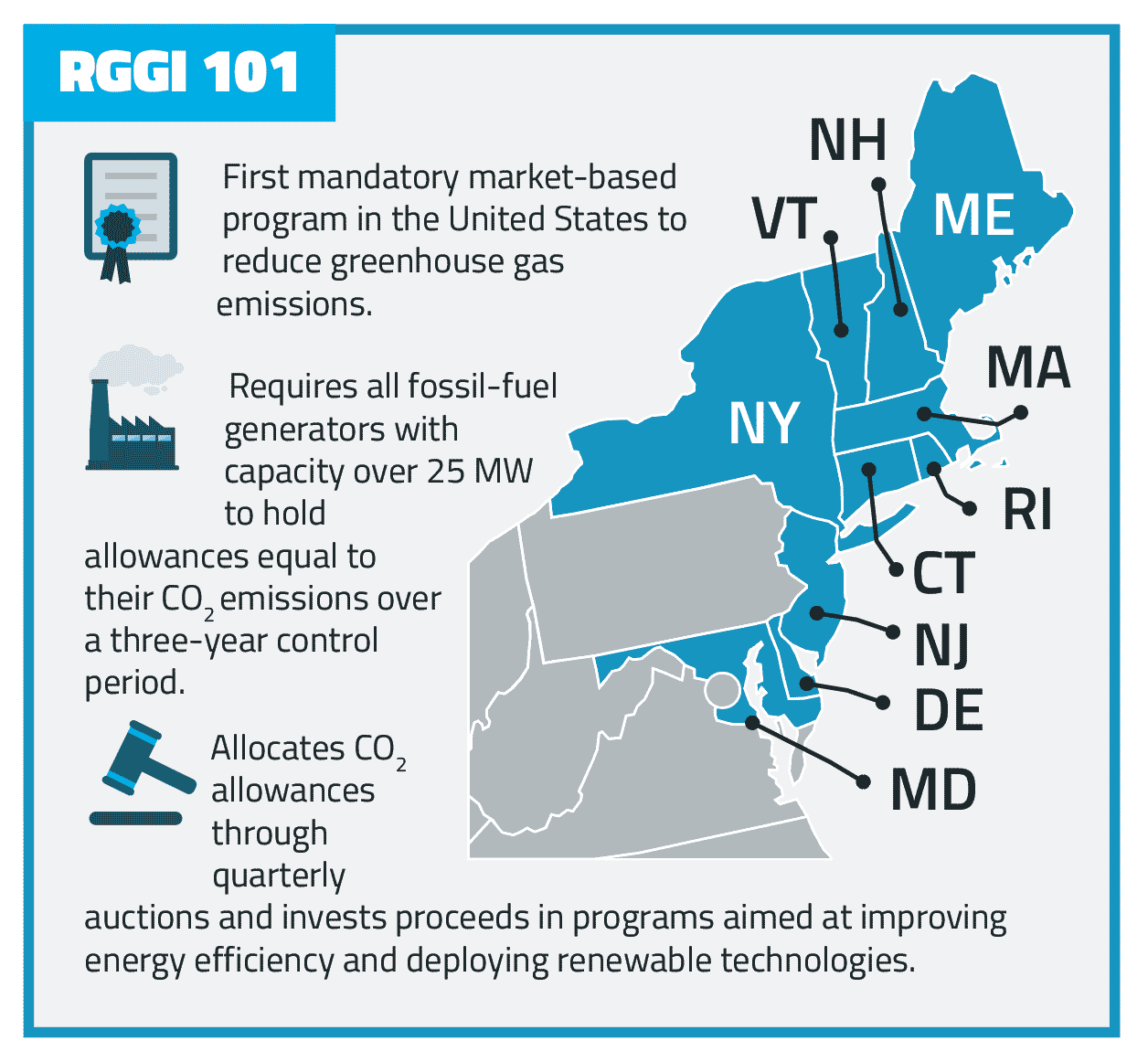New Jersey Plans to Invest $80 Million Annually From Carbon Auction Proceeds in Emissions Reduction Programs

The New Jersey Department of Environmental Protection, Board of Public Utilities, and Economic Development Authority on April 17 released a three-year plan to invest the proceeds from the carbon auctions held under the Regional Greenhouse Gas Initiative, or RGGI. The state plans to invest an estimated $80 million each year in clean energy and climate mitigation programs, with a focus on projects that benefit environmental justice communities. New Jersey rejoined RGGI on Jan. 1 and took part in the March quarterly auction after a break of about eight years, realizing more than $20 million in proceeds.
The state’s Democratic Governor Phil Murphy initiated the process of re-entry in January 2018, after his predecessor, Chris Christie, a Republican, withdrew the state in 2012. The ten-state compact established the first mandatory market-based cap-and-trade program in the U.S. to reduce emissions from the power sector.
The plan will focus on four broad initiative areas in the next three years. Firstly, the three state agencies will collaborate on projects that catalyze clean and equitable transportation. Secondly, the plan will fund initiatives that will enhance the coastal ecosystem and promote blue carbon, which refers to carbon stored by soil and plants in marine ecosystems. Thirdly, the state will enhance forests that play an important role in the carbon cycle by sequestering carbon. Finally, the plan envisions a green bank to improve capital access for those who have traditionally faced more difficulty in availing the benefits of participating in the green economy.
DEP Commissioner McCabe said that the plan would help New Jersey emerge stronger from the economic impacts of the COVID-19 crisis by creating job opportunities in green energy technologies. NJ BPU President Joseph L. Fiordaliso underscored the importance of regional collaboration in reducing carbon emissions and commended the “special focus on environmental justice communities.”
RGGI’s March auction generated about $91.6 million, bringing the total proceeds to nearly $3.5 billion for all member states. Since 2005, RGGI has delivered $9 billion in lifetime savings for consumers. Its member states have lowered power plant emissions by an aggregate of more than 50 percent. The expansion and achievements of RGGI shows the importance of cross regional cooperation to tackle climate change.
Besides New Jersey, more states are taking action to join the RGGI program. Virginia will be the eleventh state to join the regional compact, following a sweeping energy law enacted this year, mandating a transition to carbon-free power by mid-century. Pennsylvania, a major-fossil fuel producer, unveiled draft rules to join RGGI in February, following Democratic Governor Tom Wolf’s executive order. The move is significant in that it would bring a major fossil fuel producing-state into RGGI. However, Pennsylvania’s Republication leadership opposes the measure saying that the executive branch cannot bind the state into multi-state agreements.
EnerKnol Pulses like this one are powered by the EnerKnol Platform—the first comprehensive database for real-time energy policy tracking. Sign up for a free trial below for access to key regulatory data and deep industry insights across the energy spectrum.
ACCESS FREE TRIAL